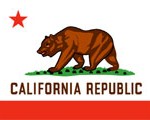New Employment Laws for California in 2012
Post Views 0New employment laws will go into effect in 2012, with workers’ compensation reform tantamount amongst the new laws. There are other changes as well and they include credit check restrictions for employers, penalties for minimum wage violators, and the removal of a loophole that restricted same-sex couples’ insurance benefits, according to The Business Journal.
The five bills, from the assembly, include AB 335, 378, 397, 1168 and 1426. These bills made significant changes to workers’ compensation processes in the state of California. Two of the bills, AB 378 and 1168, were created in an effort to lower the workers’ compensation insurance rates for employers.
“Drug compounding — a legal but rarely necessary practice — has exploded as a physician profit-center in workers’ comp,” said Assemblymember Jose Solorio (D-Anaheim), the author of the bill. “The State Compensation Insurance Fund reports that what was ‘rarely’ billed prior to 2007 rapidly escalated to over $58 million in billings in a 16-month period. That practice must be stopped.”
AB 1168 will try to limit the practice of outside vendors charging unreasonable fees for workers’ compensation in regards to counseling.
“A class of consultants known as ‘vocational experts’ has emerged to counsel disabled workers about their level of permanent disability,” said Assemblymember Richard Pan (D-Sacramento), in a release. “While this could be a positive development in the workers’ compensation system, some counselors are charging exorbitant fees for their services.”
When it comes to hourly billing rates, the bill will require a public hearing to determine a reasonable fee schedule. AB 397 was also passed by the state assembly, which is targeted at getting rid of the underground economy by requiring contractors to verify they still are exempt from coverage in terms of workers’ compensation coverage.
Christine Baker, the Department of Industrial Relations Director, and Julie A. Su, the Labor Commissioner, were the two strongest proponents of the bill.
“Both have stated that everybody in the state benefits when employers play by the rules,” said Peter Melton, public information officer of DIR. “The minimum wage and overtime laws are strong public policies, and the failure to enforce them obviously hurts workers who are denied an honest day’s pay for an honest day’s work, and it hurts employers who do play by the rules.”
AB 335 will require the administrative director to determine a reasonable set of rules and regulations to go along with a fully accessible website with material that will be in easy to understand language.
“Current notices are too long, complex, often frightening, do not convey the main points to injured workers and are difficult for employers to keep updated,” Solorio said.
AB 22 has been opposed by the California Chamber of Commerce, calling the bill a job killer.
“Like other pre-employment screening tools, such as a minimum grade point average or college degree requirement, employee credit reports provide objective information regarding an individual’s past behavior or character as an indicator of their likely future behavior,” the chamber said on its website.
New Employment Laws for California in 2012 by Harrison Barnes



 2006-2015 Median Weekly Earnings of Full-Time Workers in the United States
2006-2015 Median Weekly Earnings of Full-Time Workers in the United States  Expected Changes in 2016 to the Workplace
Expected Changes in 2016 to the Workplace  Amazon May Have a Better Grasp on Workplace Culture
Amazon May Have a Better Grasp on Workplace Culture  Top Canadian Companies You Want to Work For
Top Canadian Companies You Want to Work For  November Posts Another Strong Job Report
November Posts Another Strong Job Report  US Dollar Gaining Momentum
US Dollar Gaining Momentum